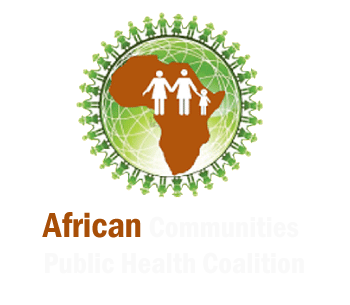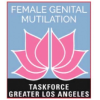Black Immigrant Youth Empowerment Project (2018-2019)
By Dr. Richard Cervantes and Diego Fuentes
“African American and Black immigrants do not have a clear definition of mental health, because people in this community do not readily speak about mental health or mental illness.”
Introduction
Participants were recruited by the President of African Public Health Communities Coalition and by two youth leaders who will take an active role in “The Black Immigrant Youth Project.” Participants were also recruited through social network groups and community engagement presentations. Adult participants were already engaged in the organization as they are the organization’s projects’ advisory committee group. The six questions asked during the focus group were developed by the project evaluators and the president of the African Public Health Communities Coalition. Questions were developed to gain a better understanding of the African American and Black immigrant community’s view of mental health and their needs within the Los Angeles area. The answers of such questions will tailor the project to address community’s needs discussed in the focus group. The adult and youth focus group were conducted on separate days. Both focus groups were led by the project’s evaluators and were audio recorded with participants’ consent. Focus groups lasted from one and half hours to two hours.
The adult focus group held on August 18, 2018 had 8 participants. The participants were from diverse backgrounds identifying as African American, Black, Ethiopian, and Egyptian. Respondents were asked 6 questions; their responses have been summarized into major themes discussed below. Respondents were asked “How would you as stakeholders in the community define mental health within the African American and Black immigrant community?” In general, according to the focus group respondents, African American and Black immigrants do not have a clear definition of mental health, because people in this community do not readily speak about mental health or mental illness. Responses to this first question also indicated that the term mental health is defined in both negative and positive ways within the Black immigrant and African American community. A positive definition of mental health includes having the understanding that there is a “sum total of stressors, psychological, emotional, financial, which started way back from slavery.” Respondents also mentioned that part of mental health includes that people need to understand that African Americans and African immigrants are still affected by this historical trauma. Understanding one’s history should not be limited to the times of slavery but also before then. Another positive perspective of mental health discussed in the focus group included being able to sustain daily functions. “Mental health is [having the capability to be] sane, safe,” having “good mental health [means] we have psychological well-being.”
However, from a negative perspective mental health in this community is not openly discussed; it is stigmatized or is seen as a taboo. One of the respondents stated that “mental health… is not being accepted in our black community, we tend to behave as if everything is alright, everything is great, everything is okay, it becomes a taboo to talk about your mental status, it becomes unhealthy to tell someone that I am depressed.” Some people attribute mental health issues to physical symptoms because they are unable to express their emotions. For example, people have “headaches, high blood pressure, and other [physical] problems.” Black immigrants “have [been] put in a shell-like cocoon… [who] do not see mental health as an issue.” Respondents understand that mental health is an issue that needs to be discussed and awareness has to be raised in the community.
Next, the focus group participants were asked “What are the causes of mental illness within the African American and Black immigrant community?” Respondents had several things to say about the causes of mental illness. Black immigrant and African American youth are growing up with messages that they are not valued. They face systemic and institutional racism that prevents them from feeling that they can be successful leaders in their community. “Kids are taught, you are no good.” Institutions “need to make it available that black people are going to space, black people are designing cars,” so youth will begin to feel empowered and resilient. There is a need to show kids that they can go far too, and that they are not limited by the environment that inhibits them from growing.
Other respondents commented that there is also a loss of family connection that exists today that contributes to poor mental health dating back to slavery because of a lack of support group. Not having a support system leads to individuals experiencing mental health turmoil. “It does not [necessarily] have to be your [biological] family” who supports you in good and bad times. Black and African Americans, “realize we need each other, we need a community…Black people have found that in the churches.” However, even when people have a support system, it is necessary to love oneself. Another stated that a cause of mental illness is a lack of knowing and loving oneself. African American and Black immigrants do not have an outlet to express when issues exist. There is a “lack of encouragement to show emotions in the community.” People are stigmatized and ostracized when people begin to express their emotions. Thus, people suppress their emotions “either because they are told it’s wrong or its seen as a sign of weakness or people fear being judged”. There is a stigma in showing emotional vulnerability, because it is not encouraged.
Respondents were asked “Based on your discussion of the stressors in your life as an African American or Black immigrant, how do you cope with such stress?” Respondents mentioned that coping through spirituality and using values from religions is critical. “Once we can establish a relationship with God, nothing can stop us.” Utilizing the faith from God and trusting Him will help Black immigrant and African Americans cope with mental illness. As an immigrant in the US, the first and major resource is the faith-based community. Black immigrant and African Americans trust their leaders within the faith community. Understanding that not everybody is spiritually inclined, social groups can also be used to help youth come together and find a support system. Such social groups can focus on certain topics as sports, music, dancing etc.
Finally, respondents noted again that there is a need to recognize and be knowledgeable of the history. “You cannot talk about mental health without talking about the history.” There is a “need to educate [Black] people that it is okay to express [your feelings].”
Respondents were asked “What should African American and Black immigrant leaders do to keep youth healthy and happy?” In response, some indicated that there is a need to offer a social space for youth to express themselves and be comfortable to develop their identity. “Offer a space where they can express and process,” so they can feel comfortable searching their identity. It is important to honor who they are and help them use their culture in the process of identity discovery. The space that is created should give youth an opportunity for open dialogue and “it is important to understand that their experiences are valid.”
In order to help youth feel happy and healthy, it is vital to create a positive sense of family for African American and Black immigrant youth. Whether it is creating a space where their biological families come together, or a family is created from community members. “We can’t go back and find the families, we can be the families.” “So many have never been loved, so they don’t know what it is.” Youth cannot be judged because people do not know what they have gone through. There is a need to give them sustained hope. “Some youth do not have family,” so they join gangs to find something to belong to. If the African American and Black immigrant community is able to create a space where they receive a positive sense of family, negative behaviors and choices can be avoided. If they have their biological families who are willing to support them, but the families themselves need support, it is vital to offer them the resources they need. When trying to identify and relate with the youth it is important to “meet them where they are.” Sharing lived experiences with them can help create a bond. If you want to learn from them, ask them to teach you how to do an activity that can help you strengthen your relationship. Doing so, shows them that you care about them because you are taking the time to give them attention.
Respondents were asked “How can we prevent youth from losing a connection to their culture?” One respondent commented that guiding the youth to become leaders from a cultural perspective is important in empowering them. Exposing the youth to cultural events and museums is important as it opens the opportunity for conversation. Encouraging travel to African countries so they can reconnect with their roots. “If we can go to different countries and experience living in [a country in Africa, that] would change their life, traveling would change their life.” Create a sense of unity through food sharing, teaching youth how to make the food as a more sustainable cultural impact. Encouraging youth to try new cultural food. The aim is to “create a new space for African American youth and African descendents.” “I think it’s us who needs to open up to people, tell them our culture.”
As a final question, participants were asked “What type of services do youth need?” Respondents agreed that youth need to be loved unconditionally, “parents [and family] are the most important resources youth can have.” “The family is the fabric that keeps us together.” Youth need “consistent structure,” they need to be disciplined and be guided by their family toward a good life. Establish a mentoring program to attain the wisdom from older folks can help youth be guided through their journey. Not only establishing relationships within older adults is critical but also with peers. Creating a relationship where peers gain the trust from each other and can navigate the system together is also important. Using social media as a means to communicate with youth can help connect with them and deliver the information about the resources they may need. Showing movies where culture and mental services can help entice discussion after the film.
Youth Focus Group
The youth focus group held on October 30, 2018 had 8 ethnically diverse participants from racial backgrounds including Black, African American, Egyptian, Jamaican, Afro-Caribbean, and Mexican American. Respondents were asked 6 questions; their responses have been summarized into major themes discussed below. Respondents were asked, “How would you define mental health within the African-American and Black immigrant community?” In general, mental health is mainly discussed with church leaders due to its stigma in the community. “Nobody ever talked about it, that’s our mental health. You will go to the minister…they will pray for you.” Some people tend to disregard it and believe mental health isn’t a real problem. Phrases such as ‘just ignore it,’ ‘she’ll be okay,’ and ‘it’s nothing’ are commonly expressed among African American and the Black immigrant community when referring to mental health. Respondents mentioned that mental health in the Black community is not addressed and is even considered a taboo. Mental health was referred to as “the elephant in the room.” Respondents understood that there is a need to educate the African American and Black community about mental health as“[people] don’t even acknowledge that mental health is an issue…10 years later you have an angry youth…it becomes a cycle.” Someone stated that in some cultures, mental health might be viewed as something positive and unique while in others it may be the exact opposite. Overall, there is almost an absence and lack of knowledge on the topic within the community because it is not really spoken about; therefore there is no clear definition.
Despite not having a clear definition, respondents raised several topics. Since mental illness is usually ignored in the community, it causes emotional and psychological turmoil that can create negative results. Someone mentioned underlying emotions that aren’t dealt with can seriously damage one’s mental state. Immigrant parents have high expectations for the US born children for their future career path stifling the youth’s identity.
Next, focus group participants were asked, “What are the causes of mental illness within the African American and Black immigrant community?” The group responded that trauma and their genes are the main drivers that affect mental health. For example, people expressed that trauma experienced by previous generations affected them over time. “Older generations see trauma as a result of genetics.” Respondents understood the importance of addressing historical trauma, and that if ignored, can lead to more serious issues. For example, a popular response was that whatever the mom experiences throughout her life, can impact the child’s mental state. Structural inequality is an issue that youth face in institutions, such as schools. “What they need is love and care and resources…but when they go out into the community they may be policed… [adding] trauma on top of trauma.” It was also mentioned that in some African countries, mental health can be triggered by spiritual entities or an ‘evil eye.’ In some African countries mental illness symptoms were attributed to spiritual factors. According to respondents, culture, community, and society’s structured inequality can negatively impact mental health in African American and Black immigrant communities.
Next, respondents were asked, “How do you cope with the stress you mentioned in the previous question?” Respondents understand that dealing and addressing the stigma attached to mental health is the first step in trying to cope with stress and mental health issues. Respondents also mentioned sports and church are a great way to cope with stress. A faith based leader is seen as a vital individual in the Black community that can help address and cope through their issues. The participants understand the importance of talking to people who can listen and offer help when confronting issues. Some respondents mentioned the importance of seeing a therapist that understands their cultural background and can help them navigate through their hardships. Often, problems are ignored and people try to navigate life without acknowledging them. A respondent expressed, “Growing up… the way we did it as a family, you bottled up your emotions until it was too much and then you let it out on someone and then they let it out their stuff, and next thing you know everyone is yelling.”
Storytelling was also a popular coping mechanism among respondents. Being able to share stories that people can relate to, can help someone cope with their own issues and feel comfortable. Respondents mentioned that storytelling and comedy “allows people to feel safe and show who they are.” A respondent mentioned how art allows him to express how he feels and helps him cope with mental health issues. Another respondent mentioned that “writing was my outlet.”
According to many responses, dealing with stress and mental health issues is tough and sometimes very difficult for people to do on their own. Respondents understood the importance of being honest about one’s own mental health when asked how they are doing. Participants understood the value of self-confidence as a strategy to cope and prevent mental illness. It is important to self reflect and find out “what is the truth about me…what do I believe about myself…only you can find that out.”
Respondents were asked “Why do some African American or Black youth feel culturally disconnected from your African American and/or Black immigrant family and friends?” The most popular response was that some youth do not understand their past and origin or history. Being knowledgeable of one’s origin helps someone understand what occurred to their ancestors and can explain why certain things occur to them today. Not knowing where people came from weakens the family connection an individual may feel.
Youth who know their origin and are raised in the US can feel culturally disconnected to their culture when visiting their parents’ hometown. A respondent expressed how sometimes she feels “too African for America, and too American for Africa”. Youth have to learn to navigate and maneuver through the space they are living, which can cause identity turmoil. Other respondents stated that immigrants may have it tougher because they are trying to balance their life with a totally new American culture. These immigrants feel segregated from their families in their country and might also experience some discrimination by their own communities. A respondent mentioned the difficulty in being accepted to her own cultural community as an individual who identifies as LGBT.
There exists the issue of “colorism” within each community. Respondents have experienced moments when they have been told that they do not “look of their culture.” Being multi-racial is difficult for some because they feel disconnected from their racial and/or cultural identity. Furthermore, the disconnect persists when individuals fill out demographic sheets that ask them to check one box regarding their racial identity and can’t identify with any single option.
Respondents also addressed solutions to alleviate this cultural disconnection among youth. Someone stated that “when there is unity, there is strength,” African Americans and Black immigrants have to be more united within their communities to strengthen the cultural ties. Social media was brought up several times in all the questions. Respondents understood that social media can positively and negatively impact individuals. Social media can encourage people to be socially accepted and portray an untruthful identity. However, social media can also be used as a means of uniting people through technology. For those individuals who may not have role models in their community, they can find them through social media posts. It can be used to find ancestors or promote cultural events that can help unite communities along with many other benefits.
Next, respondents were asked “How do you think the African American and Black immigrant community can help address your needs? and in a related question “What services can your community offer to address your and your peer’s mental health needs?” Respondents mentioned how it can help to strategically offer a diverse range of social programs as gardening, yoga, art, writing etc. across the city. There is a need to expose people to “a pool of reserves” and resources that help “give the youth [the] opportunity to embrace their emotions through the arts … but to also include [the] mental health informational aspect” within their community. Someone also mentioned bringing all mental health resources together in an effort to stimulate community involvement that can ultimately lead to better mental health and community connectedness. It is important that “we have to go to the [youth]; we can’t expect them to come to us.” For example, if there is a financial crisis that the youth is undergoing, the community should have the tools to assist them or at least guide them to get help. People suggested that starting at a church community can serve those in need and are searching for mental health services. Speaking and sharing lived experiences can help people find the help they need or at least know they are not alone as someone is willing to listen. In order to address the community’s needs someone suggested offering a safe communal place that can either be social or spiritual. This ‘space’ can be utilized to feel connected with their community and know others may also have similar needs and issues. Through the utilization of such spaces, the African and Black immigrant community can begin to destigmatize mental health and instead address the needs by providing resources.
One of the respondents stated that in general, “other ethnic groups help their young—I don’t see that happening in the black community.” People also included finances and how it is not talked about along with mental health. Financial help or assistance can help address the economic problems that exist within the community. Furthermore, a respondent stated that it is very important to break or attempt to fix language barriers. Being able to communicate and understand each other can help address people’s needs quicker. Mental therapy was also raised as a coping mechanism among the youth. A male in the group suggested that more men need to come together to speak about mental health. He stated that it isn’t common for men to seek health and so males act accordingly, making it difficult to address these issues. This action can ultimately lead to problems later in the future that can be traumatic. It is important to “have discussions with men…on what it means to be a man.”
The final question was “What about health and mental health do you expect to learn by participating in this project?” People in the group responded that they wanted to learn more about self love and care. In finding the self-love they recognized the importance of finding an “internal balance” as “everything we need is within ourselves” They also mentioned learning about the impact of nutrition and physical activity to their mental health, “you are what you eat.” Participants want to create a space where the “movement of energy” can occur in a positive way within their community. It is vital for youth to know where they can find the resources within their community. The LGBT community was also mentioned to raise the point that a safe space where they feel accepted needs to be readily available in their community. A respondent mentioned that there is a need for a cultural shift in accepting that there is a need for a “mental health assessment.” The current medical system “doesn’t allow people to feel comfortable,” doctors are rushed to “get to the next patient.” Someone replied that normalizing therapy and other ways to cope with mental health are the first steps in learning about it, “you have a doctor for this, [then] you [should] have a doctor for your mind.” Learning about the medical world can help people in the community be more confident in seeking help and not be afraid of the disconnectedness that exists. Having knowledge about basic mental health can help African Americans or Black immigrants become more comfortable with themselves over time. It is important to have body awareness and understand when to seek help. People want to find ways so that mental health resources are available and can be delivered efficiently within the community.
Conclusion:
Overall, participants in the focus groups were engaged; the focus group members realized the need for the conversation to continue past this event. Respondents were very active in sharing their opinion. When differences in ideas were raised, participants were respectful of one another. Salient themes that were mentioned throughout the focus group included understanding the history, historical trauma, the importance of love especially self-love, and the yearning to create a space for youth to be healthy and happy citizens.
Taken together from both the adult and youth focus groups, the following key themes and suggestions emerged:
- There is no one unified definition of mental health in the Black immigrant and African American community
- Generally, the concept of mental health is not widely discussed among youth or adults
- Any understanding of mental health must consider historical trauma, slavery and colonization issues
- Participants from both focus groups understood that in order to promote mental health among youth, the youth need to feel loved and accepted.
- Participants from both focus groups felt that love is important, especially self-love when discussing mental health.
- According to the adult and youth focus group having a stable family structure or support system is critical in addressing mental health.
- There is a general lack of health services and activities available for youth in the Black and African American community.
- Participants felt that it is important to create a space where youth can come together and engage in the hobby they like best. For example, social activities can be offered across the city or in a community center where youth can engage in group yoga, dance, music, basketball etc. and mental health can be incorporated to help youth learn about ways to cope with mental health issues.
- Participants understood that mental health needs to be discussed at earlier ages. A suggestion was to create a space where all neighborhood kids are invited for a night to socialize and where mental health is discussed.
- Adult and youth respondents understand that there are systemic barriers within the mental health field that persists inhibiting individuals from seeking treatment.
- Participants identified the importance of advocating for cultural relevant mental health treatment. For example, being treated by someone who is able to understand and/or relate to their culture and norms.
- Participants discussed about the possibility of advocating to have mental health assessments incorporated into current physical health assessments and restructuring the current system to make “it more welcoming” and less intimidating. For example, allowing more time when having patient and clinician interaction.
- Through youth advocates inform the mental health community leaders on how African American and African immigrants want to be treated.
Reference
Mental Health America. (2018). Black and African American Communities and Mental Health. Retrieved from: http://www.mentalhealthamerica.net/african-american-mental-health


























